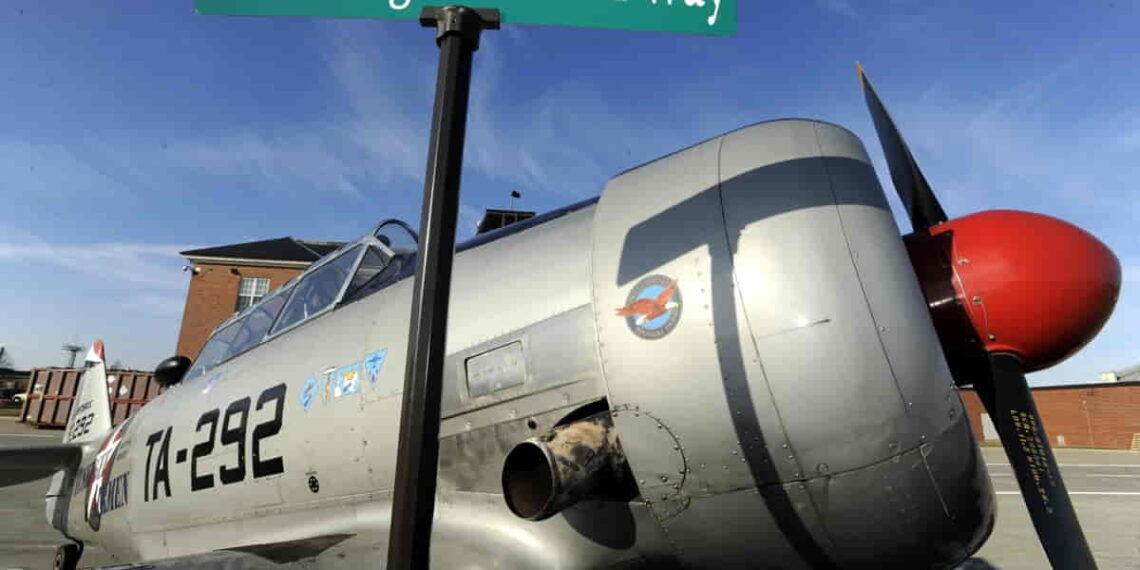Air Force Removes DEI Training Videos Featuring Tuskegee Airmen and WWII Female Pilots
In a move that follows the Trump administration’s crackdown on diversity, equity, and inclusion (DEI) initiatives, the U.S. Air Force has removed training courses that featured videos of the renowned Tuskegee Airmen and Women Airforce Service Pilots (WASPs) from its basic military training. These historical figures—Black military pilots from World War II and female pilots who were essential in ferrying warplanes for the military—were previously highlighted in DEI-related coursework.
Air Force’s Response
The Air Force confirmed the removal of these videos, stating it is “fully committed to executing and implementing all directives outlined in the Executive Orders issued by the President.” The service emphasized that these changes would be carried out with “utmost professionalism, efficiency, and in alignment with national security objectives.”
While the videos themselves are not the issue, their inclusion in DEI training has raised questions. The lack of specific guidance on what content is acceptable under the Trump administration’s policies has led the Air Force, along with other military branches, to adopt a broad approach in removing materials that could be seen as promoting diversity-focused content.
The Tuskegee Airmen’s Legacy
The Tuskegee Airmen, often called the “Red Tails,” were the first Black military pilots in U.S. history. They served in a segregated unit during World War II, with their 332nd Fighter Group known for its impressive record. Their courage and skill led to one of the lowest loss rates among bomber escorts during the war. The Airmen flew various aircraft, including the P-47 Thunderbolt and P-51 Mustang, protecting U.S. bombers on dangerous missions over Germany. Prior to their involvement, U.S. bombers faced heavy losses due to German dive-bombers.
In 2007, President George W. Bush awarded the Tuskegee Airmen the Congressional Gold Medal for their groundbreaking contributions. Additionally, in 2020, President Donald Trump honored one of the last surviving Tuskegee Airmen, Charles McGee, promoting him to the rank of brigadier general. McGee passed away in 2022 at the age of 102.
The Women Airforce Service Pilots (WASPs)
The WASPs were pivotal in World War II, serving as ferry pilots for newly assembled bombers, ensuring these aircraft were delivered to airfields where they were needed for combat. This critical work allowed male pilots to focus on overseas combat missions. For years, the WASPs were not fully recognized for their contributions, but in recent decades, their service has gained more recognition. In fact, they were granted the right to be buried at Arlington National Cemetery only in the last decade.
Broadening Recruitment Efforts
The Air Force, like other military branches, has been working to broaden its recruitment efforts, aiming to increase diversity within ranks, particularly in aviation fields historically dominated by white males. This push for greater inclusion, however, faces new challenges as the military navigates shifting policies on diversity training and content.
The removal of these historical training videos reflects the broader tension between promoting diversity and adhering to new government mandates on DEI initiatives. As the Air Force and other branches continue to adapt, it remains to be seen how the military will balance honoring these trailblazing individuals while staying compliant with current policies.
This article was rewritten by JournosNews.com based on verified reporting from trusted sources. The content has been independently reviewed, fact-checked, and edited for accuracy, neutrality, tone, and global readability in accordance with Google News and AdSense standards.
All opinions, quotes, or statements from contributors, experts, or sourced organizations do not necessarily reflect the views of JournosNews.com. JournosNews.com maintains full editorial independence from any external funders, sponsors, or organizations.
Stay informed with JournosNews.com — your trusted source for verified global reporting and in-depth analysis. Follow us on Google News, BlueSky, and X for real-time updates.














